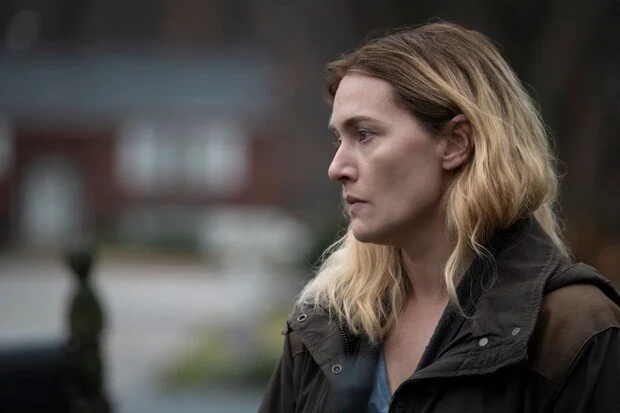Ahead of the Finale, Mare of Easttown is “Ending-proof”
HBO
In a few hours, Mare of Easttown will arrive at its conclusion, its killer will (presumably) be revealed, and any outstanding loose ends will (again, presumably) be tied. It’s the natural lifecycle of just about every television crime drama. And while most of us will spend the next few days digesting its ending and debating the creative choices of its writers, I’m already satisfied with the series, despite not knowing its ending, because for me, it was never about the actual mystery.
There’s two major elements of the show that elevate it far beyond a typical crime drama for me personally, and no matter who the killer is, or how the series ends, those elements have solidified it as a must-see series in my view.
The first and most obvious element is the acting performance of Kate Winslet. Enough can’t be said about her role as the title character. It might be her best acting performance, period. It’s not just the oft-mentioned fact that the British-born actress pulled off a convincing and notoriously difficult Delco accent (UK and Australian actors run circles around Americans when it comes to pulling off accents, that’s nothing new), but rather that she’s completely disappeared into the role altogether.
The eye rolls, the scoffs, the deadpan deliveries, the rough exterior, even the occasional junk food snacking and vape pen blowing are all small but distinct textures that make this character feel like a living, breathing, real person. The devil is in the details, and Kate Winslet’s Mare is so layered with them, sometimes it’s laughable how good she is in one-on-one scenes. That’s not to take away from the performances of any of the other actors. Everyone pulls their own weight on the show—but the main reason Easttown has made a mini splash in the zeitgeist is because Winslet is just that good. With her performance goes the series.
The second element of the show that’s ending-proof is its focus on, and depiction of grief, desperation, and human suffering at large. The killer can end up being Mare’s mom, or some other ridiculous, out of left field character, and the series wouldn’t be ruined in my eyes, because it was never truly about the murder mystery to begin with.
Yes, finding Erin McMenamin’s killer is the initial hook of the show, but as the vines of Easttown pull you in deeper, it’s clear the show serves as a commentary on emotional trauma and the handling of said trauma more than it serves as a run-of-the-mill gritty whodunnit.
Whether you’re a teenaged father dealing with a baby you never wanted to have (who may not even be yours), a woman grappling with the repeated infidelities of her husband (who is now implicated in a murder), a sister watching her brother’s ugly and pathetic descent into addiction, a mother trying to battle her own addiction to gain custody of her son, another mother battling cancer alone while she desperately searches for her missing daughter, or yet another mother living with the image of untying her dead son’s hanging body from the attic permanently burned into her brain - there’s a lot of grief to go around.
To put it simply - no one is living a good life in Easttown. Maybe the twist at the end will be that the entire town is cursed, built on sacred burial ground, like something out of a Stephen King novel. That would actually help explain why the town is so fucked up as a whole.
Throughout the series, we’re shown how different characters react to their personally shitty circumstances, with responses varying from self-destructive, to criminal, and everything in between, with no one character dealing with more at once than the Lady Hawk herself.
Living next door to her ex-husband, with a mother she hates, a daughter who hates her, a grandson she loves who she might lose, the stunted grieving process over the son she’s already lost, with an entire town’s hopes and expectations placed on her to solve Erin’s murder, after she watched her only partner in the case die right in front of her—she’s got quite a lot on her plate.
So far, she hasn’t grappled with any of those things head-on, choosing instead to internalize it, and both hone in on her detective work and help those around her process their own grief.
And therein lies the tragedy of Mare’s arc, and why it really doesn’t matter who the killer is. Once the case is solved, and the town gets collective closure - Mare will have nothing left to distract herself with. No major cases to explore and use as an excuse to avoid her personal sorrows. She’ll be forced to confront all the unsustainable drama in her life, and it’s unclear if she’ll be able to.
Looking introspectively, diving into her own darkness, her own flaws, her own rot, her own psychological trauma—might be the one case Easttown’s finest is unequipped to solve.
